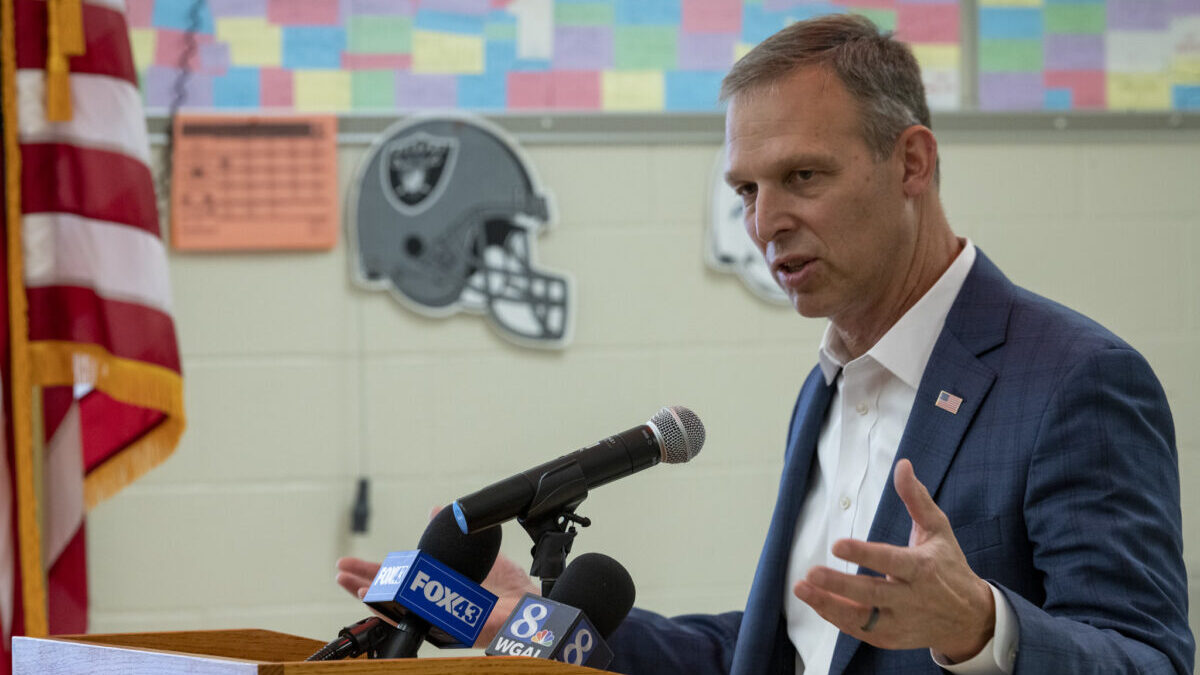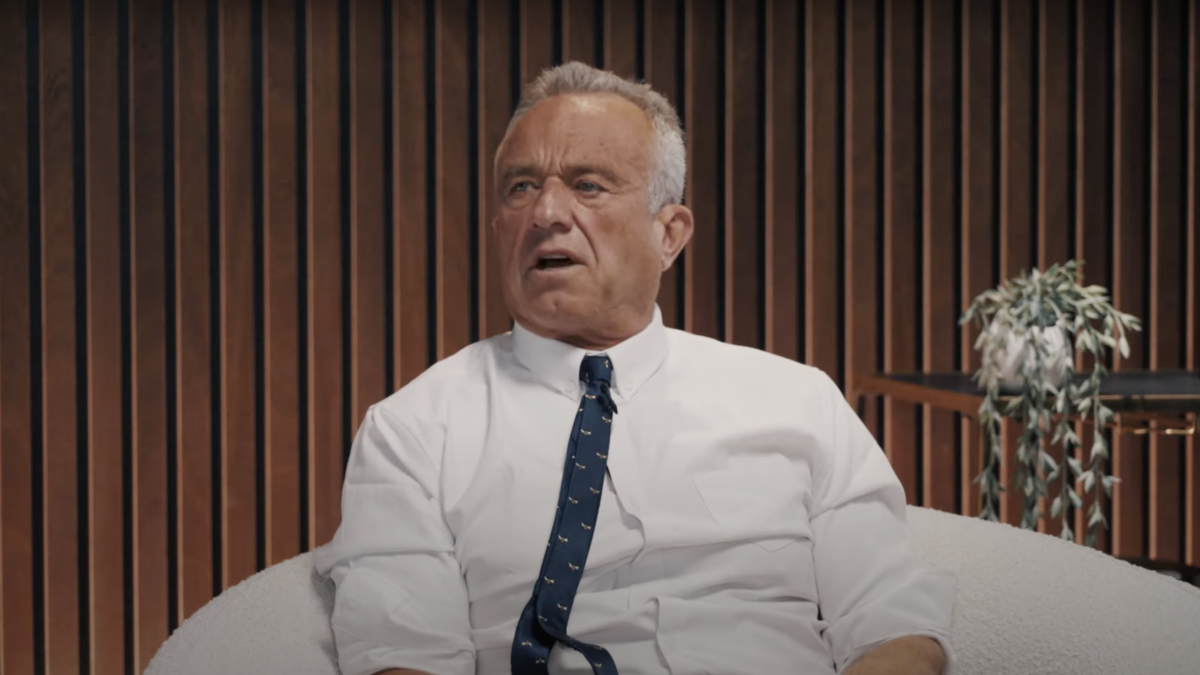
NBC News’ Brian Williams is taking a few days off from his anchor chair at the Nightly News. The Most Trusted Name In News (TM) is in a spot of trouble. He admits he lied when he claimed he was in a Chinook helicopter forced down by rocket-propelled grenade fire in Iraq in 2003.
There are also concerns about dramatic stories he told about gangs attacking his hotel in New Orleans during Katrina. Whether he saw a dead body floating by him in the French Quarter. Whether he got dysentery on that trip. Or witnessed someone commit suicide in the Superdome. Also about whether he actually saved a puppy while on duty as a voluntary firefighter. Whether he was really “looking up at a thug’s snub-nosed .38 while selling Christmas trees out of the back of a truck” in the 1970s. And whether a helicopter he was in during Israel’s war with the militant group Hezbollah in 2006 was nearly hit by Katyusha rockets.
I could go on. The point is that he’s beginning to resemble Jen from the IT Crowd:
Obviously you can’t tell tall tales and keep your title as the most trusted name in news. But as a friend asked, and pardon the French here, “Is Brian Williams a liar, or a bullshitter?”
If Brian Williams were just a dude at the bar, he’d probably be your favorite dude at the bar. He has great stories and tells them well. The loquacious Williams is just an obscenely well-paid news reader. As Neil Postman put it in his 1985 book Amusing Ourselves To Death, “A news show, to put it plainly, is a format for entertainment, not for education, reflection or catharsis.” And that’s how we like it — here’s a promo for a new CNN game show featuring anchors competing against each other. (Show ’em who’s boss, Tapper!)
A Far Worse Kind Of Exaggeration
Some journalists have responded to the Williams spectacle by running defenses they’d never imagine using on others — such as that Williams had ordinary false memory syndrome. Others are just waiting for him to be pushed out or quietly get back to work.
Williams lied. I’m not defending him. But in a world of serial exaggerators and distortion artists, he’s the least of mainstream media’s problems.
Exaggeration and distortion is de rigueur for many political journalists.
News via the Internet:
Day 1: BREAKING TERRIBLE OR AWESOME NEWS
Day 2: Actually it's the opposite
Day 3: Actually it's sort of complex
Nathan Bransford (@NathanBransford) February 9, 2015
Exaggeration is kind of what our media do. Now, part of this is defensible. At one of my first newspaper jobs, I would write unbelievably spare copy that accurately described the event or situation I was reporting on. My editor used to take his big red pen and scrawl, “So what?” across my copy, double underlined. It was a great edit. I had to learn how to make a story interesting and how to pull out the parts a reader would actually care about.
But there’s another kind of exaggeration that is indefensible. Take the story of a low-level staffer of a back-bench Member of Congress sharing some mildly critical remarks about the First Family’s comport. The Washington Post ran more than a dozen stories on the matter. One of them was a story digging up dirt from the staffer’s high school years, written by “foreign affairs” reporter Terrence McCoy. Other media outlets camped outside of her parents home.
Exaggeration is what the media do with every story, whether it’s Ebola, invented vaccination battles, climate change, and any slight mis-step any right-of-center politician ever has the misfortune of even thinking of uttering. It’s what the past few years of War on Women hysteria have been, from the complete and utter freakout over the Komen Foundation trying to extract itself from funding Planned Parenthood, which performs more than 300,000 abortions a year, to the Sandra Fluke saga.
There’s a flip side to the exaggeration, which is distorted downplaying. This is what the media do when they suppress stories that make them look bad, whether it’s Kermit Gosnell’s abortion and infanticide clinic, Jonathan Gruber’s comments on Obamacare, the IRS’s admitted — admitted! — targeting of conservative groups, or Bill Clinton’s close ties to a pedophile.
Sometimes they do a little bit of both — distorting and exaggerating the circumstances surrounding Michael Brown’s shooting death in Ferguson, Missouri, while failing to cover many other local crimes involving police overreach. They cover violent Occupy Wall Street protests with due deference while claiming that the massive and peaceful Tea Party movement was on the verge of unbridled violence.
Brian Williams has a lying problem, granted, but the media’s problem with truth telling is much more harmful.
Why does Dana Milbank have a job?
Many reporters do great work answering the “So what?” question while also staying truthful. But many lean way too far into exaggerated gotcha territory. It’s one thing to build a story around the most interesting part of a speech. It’s entirely another to manufacture a controversy by willfully misconstruing the intent and context of the speaker.
There is probably no better example of this latter type of reporting than in the work of the Washington Post’s Dana Milbank. I had the fun of being on the receiving end of one of his hatchet pieces — what he wrote was so exaggerated and distorted that it bore no resemblance to the event I attended. MSNBC picked up his exaggerated and distorted version of events without a moment’s hesitation.
Because of my personal experience, I knew to be skeptical when Milbank made outlandish claims about another event he attended. He claimed a peaceful Muslim woman was horribly victimized by bigoted anti-terrorism extremists. Immediately the rest of the media complex linked to his story. The only problem was that he had done the equivalent of claiming his helicopter had been forced to land after being fired on. There was no way he could have confused the actual discussion at the event he attended with what he claimed went on that day. When the videotape of the event came out, the jig was up. You can read all about it in “Friends Don’t Let Friends Read Dana Milbank.”
And yet when Milbank defended his lies, he had a ton of media pals back him up.
Yes, Brian Williams told tall tales to make himself seem like a hero. That’s what the Washington Post’s Dana Milbank calls Tuesday. And I don’t see anyone talking about media integrity vis-a-vis his continued employment.
Whether or not the entertaining Williams keeps his job, we have a media establishment overrun with serial distorters, gotcha artists, exaggerators and liars. And whether Williams stays or goes, people will continue to report low levels of trust in journalists. That’s because the problem is far bigger than the occasional Sabrina R. Erdely, Stephen Glass or Brian Williams.









